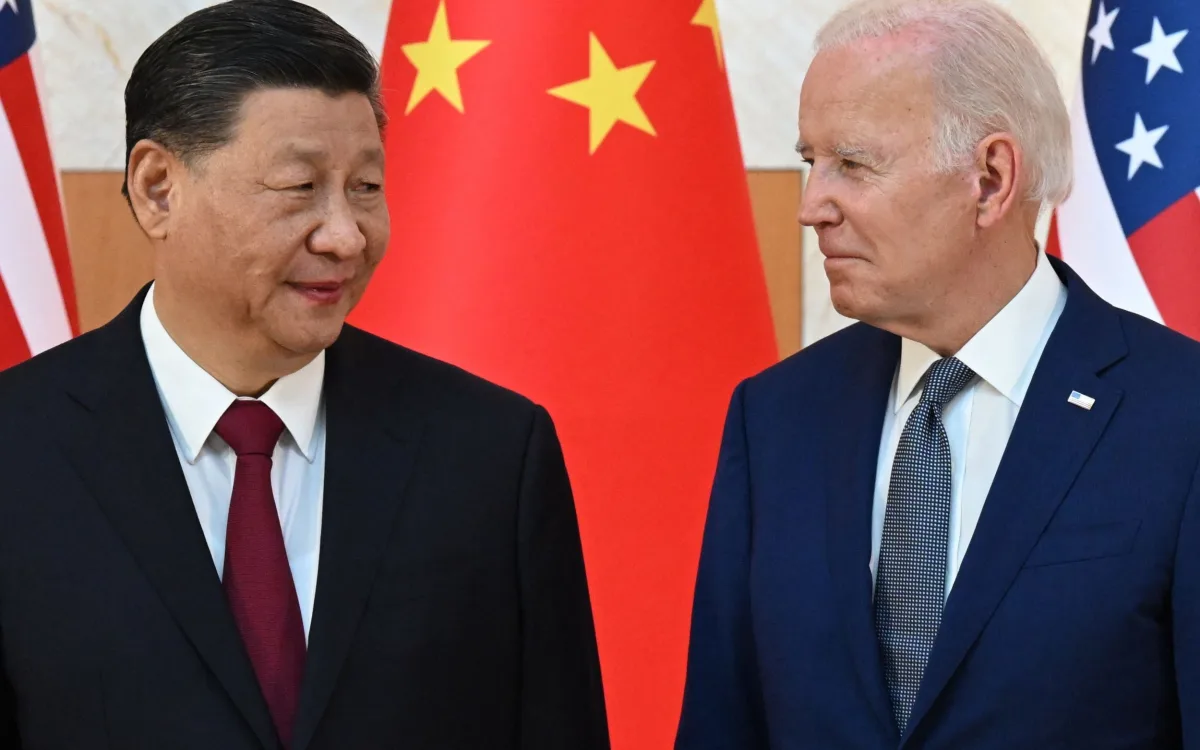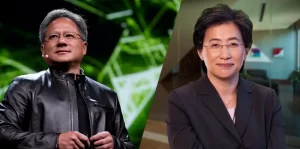Introduction
In the midst of escalating tensions between the United States and China, researchers in China are ingeniously navigating around stringent sanctions imposed on Nvidia chips.
With innovative strategies and resourcefulness, they are finding creative solutions to access crucial semiconductor technology, showcasing the agility and resilience of China’s scientific community in the face of geopolitical challenges.
Follow us on Linkedin for everything around Semiconductors & AI
Background: The Stakes of AI Supremacy
The United States stands at the forefront of AI innovation, boasting companies like Nvidia, a powerhouse in producing high-performance AI chips pivotal for driving the next generation of AI applications.
However, amidst escalating concerns surrounding national security and the potential militarization of AI, the Biden administration instituted export bans targeting Nvidia’s most sophisticated chips, including the coveted H100, effectively barring their sale to China.
Read More: Chat with Any PDF: Powered By ChatGPT – techovedas
The Ingenious Circumvention Strategies Unveiled:
Despite the regulatory hurdles erected by the US government, recent academic publications on the open-access platform ArXiv have pulled back the curtain on how Chinese researchers continue to access and exploit Nvidia’s H100 chips.
These scholarly works delve into a myriad of experiments, showcasing the chips’ prowess in solving intricate logic problems and undergoing rigorous mathematical assessments, all powered by Nvidia’s state-of-the-art hardware.
The researchers involved, hailing from esteemed institutions such as 4paradigm and the Chinese Academy of Sciences, have managed to procure limited quantities of H100 chips, raising suspicions of potential clandestine acquisitions circumventing the export bans.
Notably, the involvement of 4paradigm, previously embroiled in controversies over attempts to acquire US technology for military purposes, adds a layer of complexity and scrutiny to these endeavors.
The exact methods of obtaining the chips are not entirely clear, but possibilities include:
- Third-party vendors: Chinese researchers might be buying the chips from third-party vendors outside the US who may have acquired them before the sanctions.
- Indirect channels: Complex international trade networks could be facilitating the transfer of chips through intermediaries.
Read More:India is 3rd Biggest Smartphone Exporter to US with $3.53 B Exports in Apr-Dec – techovedas
Implications and Emerging Concerns:
The revelation of these circumvention tactics raises a host of pressing concerns, both domestically and internationally.
Primarily, the circumvention of export bans threatens to undermine the efficacy of regulatory measures designed to safeguard sensitive technologies and prevent their misuse for nefarious purposes.
The proliferation of advanced AI hardware, particularly in contexts where regulatory oversight is lax, poses inherent risks, including the potential acceleration of AI-driven military capabilities and the erosion of global strategic stability.
Furthermore, the involvement of entities like 4paradigm, which have been subject to export controls due to their alleged ties to China’s military-industrial complex, underscores the dual-use nature of advanced technologies and the challenges inherent in regulating their dissemination in an increasingly interconnected world.
Read More: What are Top 10 Most Innovative Companies of 2023 As per BCG – techovedas
Balancing Technological Advancements with Regulatory Imperatives:
Nvidia AI chips represent the cornerstone of cutting-edge AI research and development, contributing significantly to the company’s market dominance and global influence.
However, the acquisition and utilization of these chips by Chinese researchers, whether through legitimate channels or clandestine means, underscore the inherent tensions between technological advancements and regulatory imperatives in the realm of emerging technologies.
While export controls serve as a crucial tool for safeguarding national security interests, their effectiveness hinges on robust enforcement mechanisms and international cooperation.
Addressing the vulnerabilities exposed by the circumvention of export bans requires a multifaceted approach, encompassing enhanced regulatory oversight, strengthened export control regimes, and proactive engagement with key stakeholders to foster responsible technology transfer and mitigate potential risks.
Read More:Is Coding About to Become Obsolete? The Rise of Devin First AI Developer – techovedas
Conclusion:
The revelation of Chinese AI experts’ circumvention of export bans to obtain advanced microchips underscores the intricacies and challenges inherent in regulating emerging technologies within a rapidly evolving geopolitical landscape.
As the pursuit of AI supremacy intensifies, policymakers must reconcile the imperative of fostering innovation with the need to mitigate risks associated with the proliferation of sensitive technologies.
Moving forward, concerted efforts are needed to enhance regulatory frameworks, promote transparency and accountability in technology transfer processes, and foster international collaboration to establish norms and standards governing the ethical development and deployment of AI technologies.
Only through collective action and strategic foresight can we navigate the complexities of AI regulation and ensure that emerging technologies are wielded responsibly to benefit humanity.




